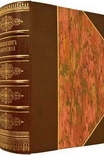Names for the Sea by Sarah Moss (moboreader TXT) 📗

- Author: Sarah Moss
Book online «Names for the Sea by Sarah Moss (moboreader TXT) 📗». Author Sarah Moss
Your feet, I find, go numb almost immediately, but hands take longer and hurt more. I hold my hands out to the children. Come on, I call, if we move fast we’ll soon get warm! Tobias wants to be picked up so he can see into the field where there were cows in summer, to make sure they haven’t come back. Reykjavík Zoo limits itself to native and sub-Arctic fauna. The Arctic foxes are performing the crazed waltz of caged animals. Next come the seals, too many of them in a concrete pond smaller than most swimming pools. At feeding time, children are allowed to enter the enclosure with the keeper and throw fish from a bucket, while a cat slides around their legs. (Just as well they don’t have tigers, Anthony mutters.) Then we can visit the hens, which is a treat because they are kept inside and there are heat-lamps for chicks fresh from the incubator. Tobias names rabbits, chickens, pigeons, teaching me Icelandic, and I spin out the conversation as long as possible, but at last it’s time to go see the reindeer, who move like dancers, shimmying across the snow to a syncopated slow beat. They sigh companionably, not interested in us but not surprised that we’re there, and I hold Tobias up against the railings so he can watch them slouching away. Storybook reindeer, Donner and Blitzen, aren’t reindeer but something fleeter, lighter, modern and European. These reindeer nose at the snow and then sit down with weary dignity, as if waiting, like the rest of us, for spring. Below the reindeer, there’s a caged hawk, a bird meant to survey our ant-like scurrying as it drifts on the wind, hopping from its perch like an oversized sparrow. (No sparrows in Iceland, no robins or blue tits. Sometimes they blow in on a south-easterly gale, hurled along the Vikings’ Atlantic route, and die of exposure and exhaustion, of lack of trees, in Seyðisfjörður.) Max’s lips are turning blue but he won’t wear a hat. Back to the aquarium, where cod and skate nose the glass and there’s shelter from the wind even though the doors stay open, and then over to the stalls, where pigs lie as if dead on the concrete floor, so fat they look as if they might split open. Sometimes there are piglets, and when there aren’t Tobias wants to know where they’ve gone. To stay with their grandparents, I say, on the farm. On past empty paddocks (they go inside, we explain, for the winter, and think lovingly of the Volvo’s heated seats) to admire a large wooden sculpture of a goat, which I imagine to have a hollow belly and a trapdoor, Trojan style. The nerves in my arms twang like plucked strings in the cold. Past the pond, where in summer there are pedalos, now frozen solid, to the adventure playground, which is the final test of willpower. Tobias runs up ramps, slides down the metal slide, impervious in his snowsuit and balaclava. Max swings and swings. Anthony stamps his feet and swings his arms. Tobias reappears on the deck of a pirate ship, small feet pattering over the bridge. I glance around and start to do small star jumps with my feet. The sinews in my arms have stiffened and I cannot think about movements that would disturb my coat. I pull my scarf over my nose and blow into it, but the brief warmth leaves the wool damp and chill over my face. Max swings, feet swooping as if he can’t feel the wind around his ankles. Tobias comes down the slide with an expression of intense concentration, as if gravity works only as long as he thinks about it. It’s getting dark again.
My head of department at home sends another e-mail, this time with a red flag. Am I teaching next year or not? After the children are in bed, whispering because in this bare, open-plan flat there are no secrets, Anthony and I consider our position. Tobias, of course, would want to stay. For almost half his waking hours, he’s an Icelander, and he doesn’t care at all whether his clothes are patched and there isn’t much fruit. The International School is a good place for Max, better than his English school with its sub-clauses about the colour of children’s socks and a curriculum determined by a regime of standardised tests unthinkable in the Nordic countries. But in Iceland we can’t afford the books he wants, or music lessons, or a printer for his homework. He can’t have skis, or trips to the ice-rink, and new shoes have to wait until we next leave the country. Money wins, in the end. Anthony looks





Comments (0)